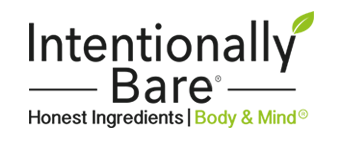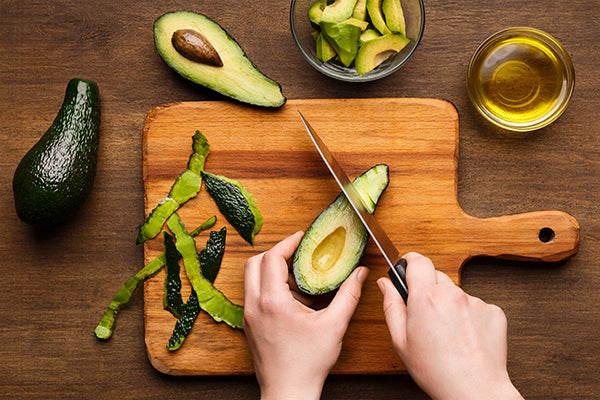I’ve seen a silly meme going around for the last few weeks. It talks about the plethora of contradictory information out there when it comes to getting healthier. Cardio or HIIT? Intermittent fasting or several small meals? Work out twice a day or twice a week? For most people, the answers lie somewhere in the middle, because each individual body has different requirements. High fat is one of those issues. Keto doesn’t work for everyone, but obviously keto works for a great many people. However, many people have a hard time increasing their fats because society has told us that high fat is bad for a long time.
I remember several years ago when I was researching the Atkins diet. I was reading an online forum, and one of the posters indicated that when she felt hungry, she would go to her refrigerator and “suck on a stick of butter.” I remember thinking “Wow, you’re going to look beautiful in your casket after you keel over from all that cholesterol.” It really turned me off to the Atkins diet, as well as anything remotely related. To me, that sort of behavior was unhealthy, because I had the understanding that fat was bad…that was what had been drilled into my head for as long as I could remember.
The thing is, high fat in the standard American diet is terrible. When you’re eating bacon, eggs, hash browns, and orange juice for breakfast, pizza for lunch, and pasta for dinner, adding high-fat choices to that diet is definitely a recipe for disaster for most people. Simply put, one cannot have high amounts of fat and carbs in their diet at the same time.
The difference is that when you’re following the keto diet, you’re using fat as fuel, not adding it on top of carbs.
Carbs for FuelFor most people, carbs are the primary fuel source. In this case, the body is running on glucose, not fat. In a well-balanced diet, carbs are consumed in the form of vegetables and whole-grain bread or pasta; sugar is an occasional treat. When consumed this way, using carbs for fuel is a viable way for many people to lose weight or maintain a healthy weight. I won’t get into which way I think is the healthiest from a medical standpoint, as keto is always the big winner there, but from a weight loss standpoint, it’s doable if you go by calories in and calories out.
While there are better ways to eat carbs, many people who are using carbs for fuel are overindulging in a few areas. The most common overindulgence is too much sugar. However, having a diet high in any simple carbs can be detrimental to a healthy body. People who eat this way often eat for pleasure rather than eating as a way to fuel their bodies.
Fat for FuelOne of my favorite parts of following the keto diet is that it taught me a new way to look at food. While I do enjoy getting pleasure from my meals, I know that food is fuel. I know that every bite of food that I consume needs to be beneficial in making my body perform optimally. To use fat for fuel, I need to be in a state of ketosis, which means minimal carbs and adequate fat. While sucking on a stick of butter may not be the best way to get my fats in, it is crucial that I get the amount of fat that I need to be functional.
Are Fats Bad?Well, yes. Sometimes.
Are you confused yet?
Anything is unhealthy if you overdo it. If you’re having a bad day and you come home and eat twenty-seven fat bombs instead of having a balanced dinner, then that’s not great. If it happens once, then okay. If you’re doing it once a week, you may have a hard time meeting your health goals. Even on keto, you can consume too much fat. That’s why macros are essential. Protein builds muscle, so you need to be eating balanced meals. Adding your carbs in the form of healthy vegetables is critical too, because it helps you avoid food fatigue. Your body needs vitamins, minerals, and nutrients to be healthy and fight off illnesses and diseases. If you are only filling up on foods that do not have these things, your body is missing out.
Hey, let’s be honest. Some fats aren’t healthy for you. Sure, we encourage you to consume MCT oils, snack on nuts, and to eat lots of avocados. These are healthy fats, but there are fats that aren’t healthy. You should avoid products like margarine, fast foods, and anything with partially hydrogenated oil as an ingredient.
Saturated fats, like that stick of butter, fall into a gray area. They are far better than trans fats, but should still be consumed in moderation. The forum poster I mentioned earlier would have done better to grab a handful of nuts or drink some fatty coffee with MCT oil (US | Canada) when she was feeling hungry. Those healthier fat choices are better for her brain, too!
Why Do We Need Good Fats?According to the American Heart Association, it’s essential to eat some fats. Fats are necessary to build muscle in your body. They are a crucial component of cell growth. Fats help keep you warm, and some vitamins are only absorbed with fat.
Eating low-fat versions of products like ice cream or salad dressings aren’t a viable alternative. First of all, many low-fat foods have higher amounts of sugar. Increasing the sugar is a way to preserve the flavor that is lost when fat is stripped out of naturally high-fat food. There may also be added chemicals in low-fat foods. When you look at the food you eat as the fuel for your body, you can understand why you would want to avoid these chemicals. They don’t add anything to how your body functions.
Instead of finding low-fat or fat-free food options, find ways to make the food you want to consume healthier. For example, if you’re worried about the fat content of your favorite salad dressing, see if you can find a recipe that features oils with better fats. You can use olive oil or MCT oil in place of vegetable oil.
The reality is, we need some fats. The keto diet helps us learn how to consume healthier fats in a way that benefits our health goals. Learning the difference between good fats and not-so-good fats will make it easier for you to meal plan and grocery shop.
Do you find that you need a little more clarity on the fat issue? Join the discussion in my Intentionally Bare Keto Facebook group! I would love to answer your questions!
You got this!
Leta ~ Intentionally Bare
DISCLAIMER: The information in this blog is for educational and informational purposes only. The content in here is not intended to be a substitute for professional medical advice, diagnosis, or treatment. Always seek the advice of your physician or other qualified health care provider with any questions you may have regarding a medical condition. Never disregard professional medical advice or delay in seeking it because of something you have read or heard here.


